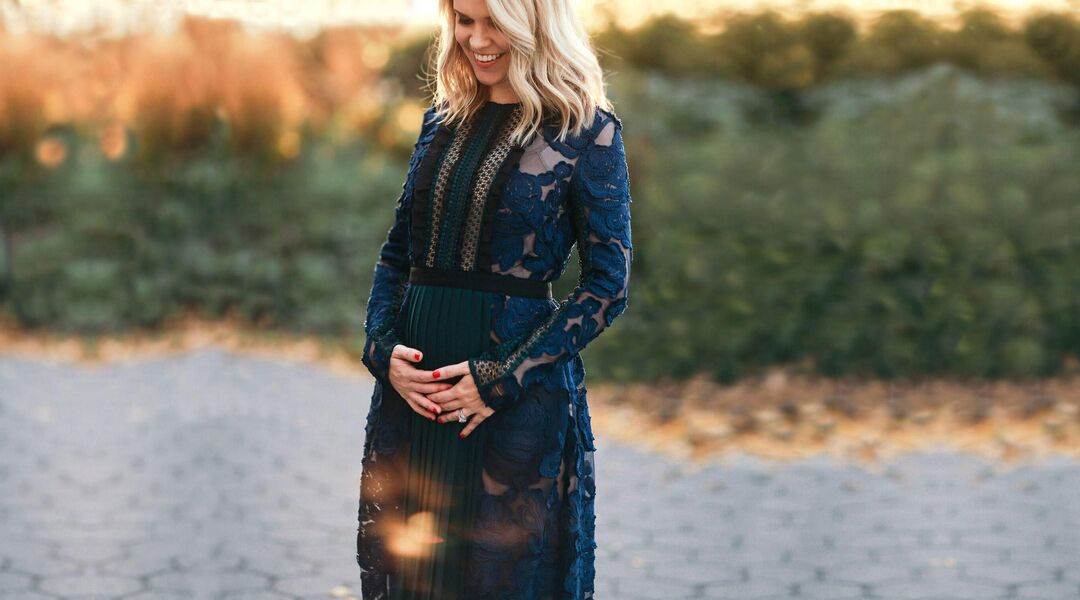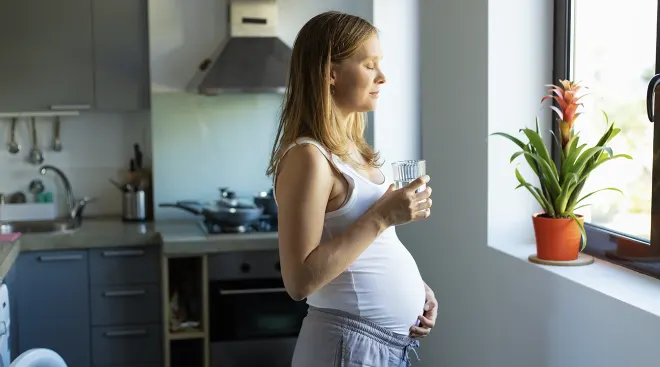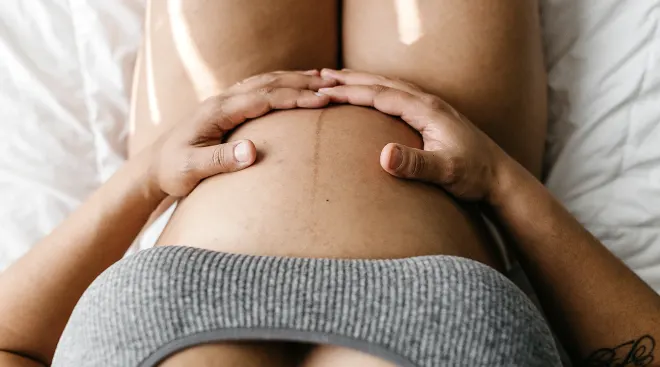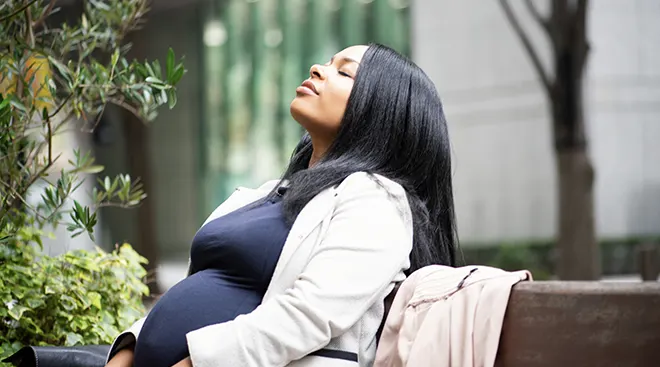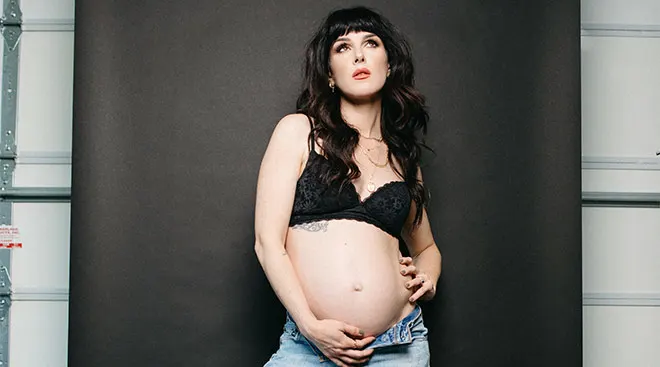What It’s Like to Be Pregnant After Miscarriage
They say no two pregnancies are the same. That’s certainly been the case with me.
When I became pregnant with my first child four years ago, my husband and I hadn’t been trying for a baby and were surprised to conceive so easily. Once I got over some initial anxiety about first-time motherhood, I didn’t have a care in the world. I went about my 14-hour-a-day job as I would’ve pre-pregnancy and never made an excuse or “pulled the pregnancy card.” I went hiking and jogging and barely noticed the time between ob-gyn appointments. I took it all for granted—as if all conceptions were easy, as if carrying to term was the norm—and never gave one thought to an alternative ending.
The second time I conceived, it was planned and we were elated to add to our family and give our daughter a sibling. Sadly, I lost that baby. The weeks following the miscarriage were an extremely challenging and dark time for me. I went through a range of exhausting emotions—disbelief, depression, anger—and I truly didn’t know if I’d be able to conceive again or if I even wanted to. But three months later we decided to try again—and were successful. I was so relieved that it didn’t take long and appreciative of this new opportunity. With this pregnancy, though, I’m far more awakened to all the potential pitfalls.
Everything makes me emotional and on edge. I lost the last baby at nine and a half weeks while in a car en route to see my family for July 4th. As luck and a twisted life would have it, when it came time to drive to my family’s for Thanksgiving this past year, I was exactly nine and a half weeks pregnant again. I thought about canceling but refrained, knowing that’d give the coincidence more power than it was due and allow superstition to supersede my life.
I fluctuate between being inherently hopeful and overly fearful. I buy boy clothing (not even newborn but 6–12 months!) that’s on sale for next winter, pick out pillows for the nursery and chat about “baby brother” with big-sister-to-be Lilly. And yet, I barely talk to him like I did with her. I hardly touch my stomach, denying myself a true connection. I feel detached and often draw up plan Bs, Cs and Ds in my head, imagining scenarios in which this pregnancy doesn’t work out.
I handled one miscarriage, but I’m not sure I could make it through another. I hesitate writing or even thinking that for fear of jinxing myself, of putting it out there in the world that’s proven to be darker than I’d like to believe.
This time around, the doctor’s appointments are a roller coaster of emotions. I’m in a bad mood the morning of, preparing myself for the worst. The clock ticks painfully slowly in the waiting area and again in the observation room until the doctor arrives. Several times, the nurse hasn’t been updated and slips, saying something like, “So, you’re 20 weeks today” when I’m only 12 weeks along or, “Today’s your glucose test?” when it’s not for another several months. I’m acutely aware that each mention is in reference to my prior pregnancy and it’s excruciating. When the doctor finally arrives, checks me out and says everything looks good, I almost don’t believe her. I have to see for myself, asking for one more minute, staring at the moving image on the screen, allowing my brain to signal to my heart: There’s still hope.
One more milestone passed. One step closer. Still, so many to go.
I leave, relieved, elated and ready to tackle the world. I’m suddenly inspired to write, live, do—and I act on it. It only lasts for a day or two. Then the fears creep back in. Each little twinge of pain, every cramp and odd feeling is questioned and analyzed. I slow down, step back, abandon my plans and wait. For what, I’m not sure. Reassurance? The due date?
Being paralyzed with fear is not in my nature. It’s a foreign feeling and I’m not comfortable with it. I’m not an anxious person. I embrace life. I’m (usually) optimistic, a dreamer and a doer. Adopting a new personality has been the most troublesome of all.
At 37 years old and post-miscarriage, I’m treated as both high-risk and “of advanced maternal age,” which hasn’t helped ease the stress. This pregnancy has been far more clinical. I have weekly appointments, more screenings, progesterone suppositories and half a dozen other medications to take, plus doctor’s orders to rest and refrain from working out.
With each month and marker passed (from 12 weeks pregnant to 24, from a baby the size of a plum to as big a cantalope), I’m slightly relieved, allowing myself to hope half-heartedly. Now, at week 30, I can feel flutters and movement, so I’m more at ease. I have actual daily reassurance (no appointments or sonograms needed) that, at least for now, everything’s okay.
But I truly don’t feel like I’ll be okay until he is, until I’m holding a healthy baby in my arms. Because the more time that goes on, the higher the stakes become. The more attached we get to the idea—and the reality—of our son being born in June, the more we talk about it and plan for it, the more terrifying the idea of an eventual loss or complication is. So when I find myself going about life like before, planning as a family of four, designing his room, buying blue things and assuming he will make it, I scold myself and reign it back in. Nothing is for certain, Natalie.
For beacons of hope, I look to women who’ve miscarried and gone on to have additional children, imagining them feeling even more appreciative and in love once their baby arrives. What a miracle. May it be mine. May it be yours.
Please note: The Bump and the materials and information it contains are not intended to, and do not constitute, medical or other health advice or diagnosis and should not be used as such. You should always consult with a qualified physician or health professional about your specific circumstances.
Navigate forward to interact with the calendar and select a date. Press the question mark key to get the keyboard shortcuts for changing dates.
Advertisement
Advertisement
































